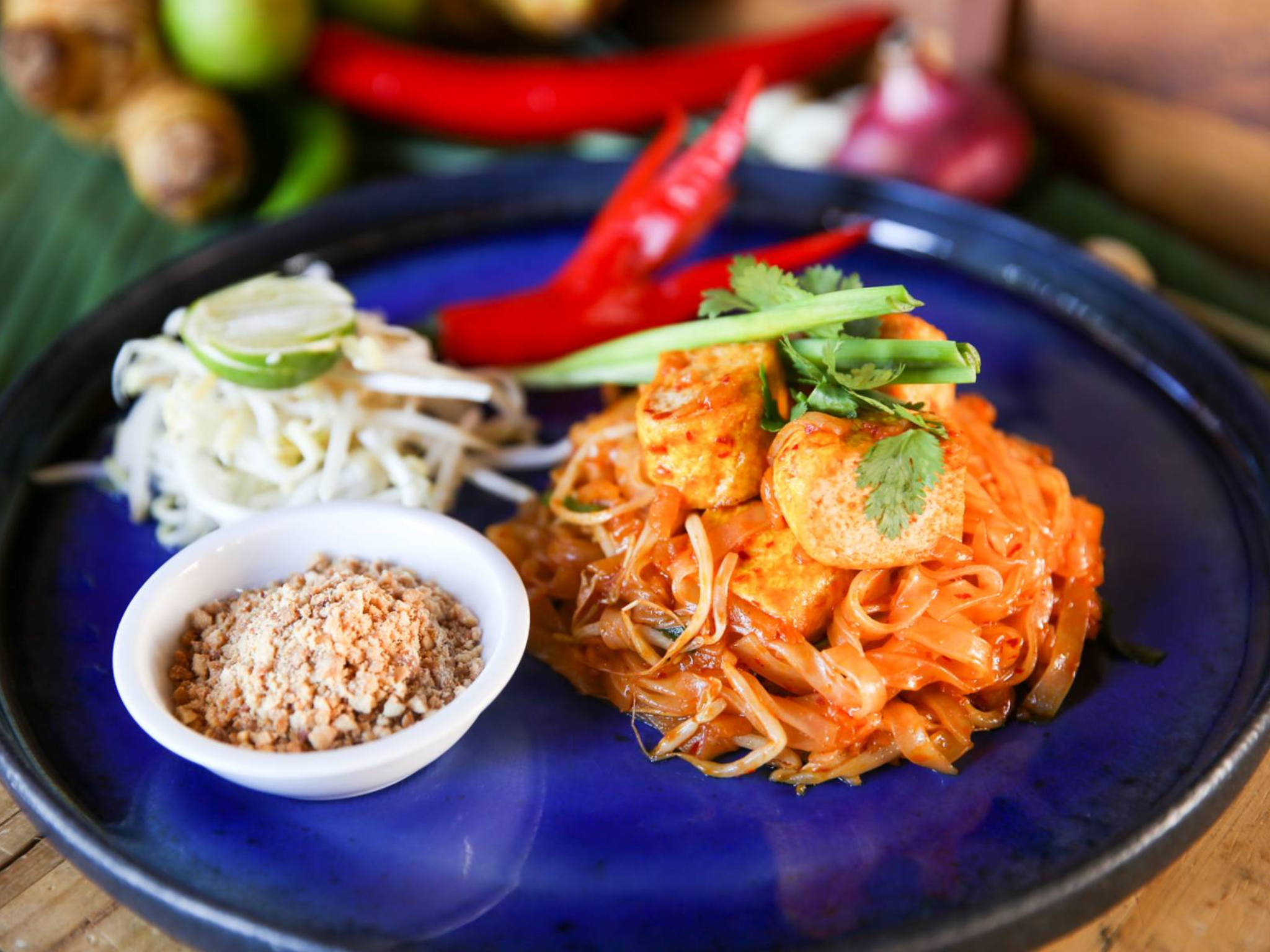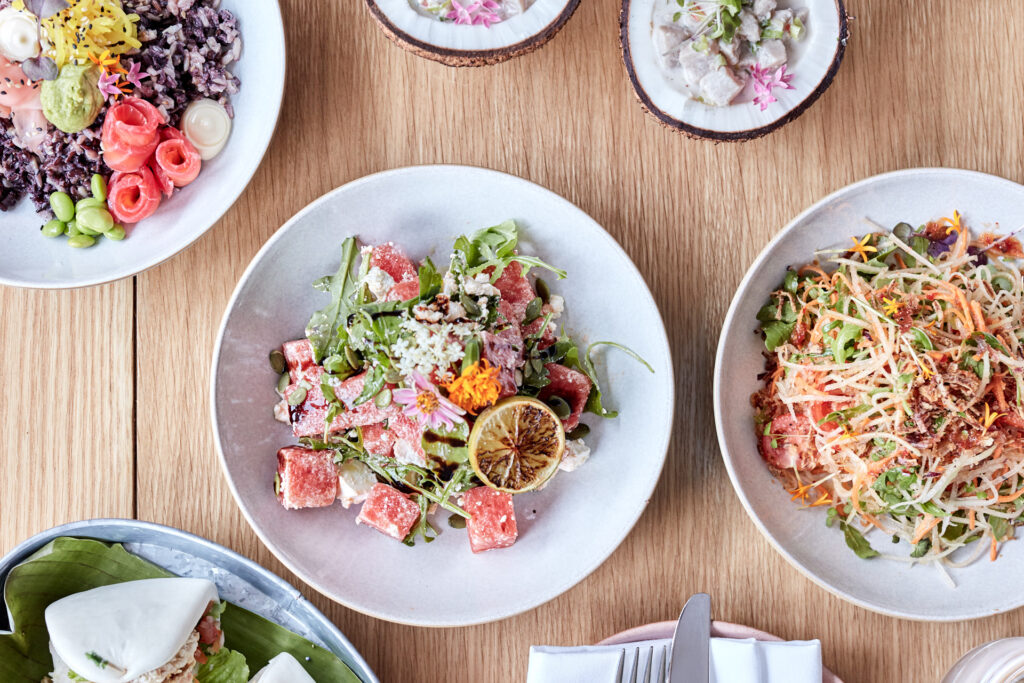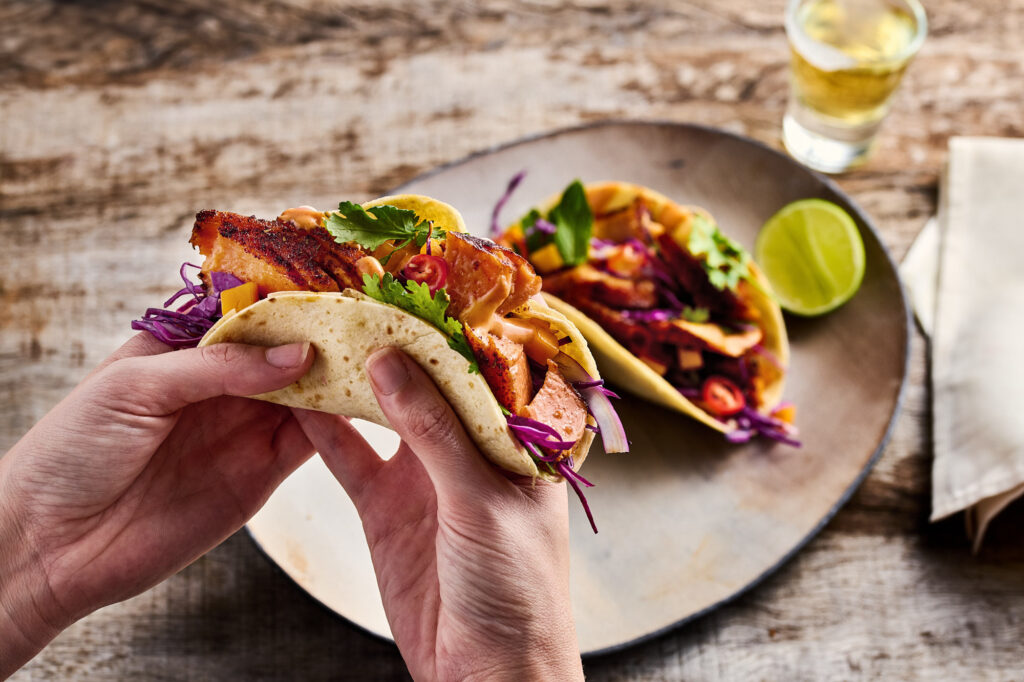
At all 600 Novotel hotels, Accor Group has pledged to ban 350 endangered fish species as part of its responsible seafood policy, and set a goal to make menus more plant-forward.
One of the world’s largest hotel chains has made two major climate commitments that will clean up its food supply and help lower its guests’ dietary footprints.
Novotel, part of the Accor Group, has unveiled a Plant-Forward goal across its 600 hotels worldwide. Under this ambition, it will make at least a quarter of the dishes on all menus meat-free by 2026. Currently, nearly two in five of its hotels dedicate 25% or more of their menus to plant-forward options.
In addition, the company has committed to removing 350 endangered seafood species from its menus and promoting responsible fishing by 2027, in collaboration with WWF France.
Novotel takes on seafood sustainability

“We’re committed to making it easier to make choices that have a positive impact on the longevity of the planet, on marine life, and on future generations,” said Jean-Yves Minet, global brand president for Novotel. “From responsible sourcing to a Plant-Forward approach, our ocean impact strategy is designed to drive real change.”
Minet called WWF France the “driving force” behind the seafood commitment. It has been working with the conservation organisation since June 2024, taking measures to champion sustainable seafood sourcing and ocean restoration projects via science-based action and investment.
The new Sustainable Seafood Principles include the species ban, serving only Marine Stewardship Council-certified wild-caught or responsibly sourced local fish, and using only organic or Aquaculture Stewardship Council-certified farmed salmon and shrimp.
WWF France’s fishery experts have created a gibel training programme for Novotel chefs, food and procurement teams, and are working with Accor Group to improve traceability. Further, the hotel group has created two games to educate visiting families about ocean conservation and the threats faced during turtle migration.
Faced with the growing threats of overfishing, pollution and loss of biodiversity, economic players have a key role to play,” said WWF France’s ocean programme manager, Ludovic Frère Escoffier. “By collaborating with influential companies in the tourism sector, together we are accelerating the transition to more sustainable, responsible practices that are compatible with ocean resilience.”
The seafood industry is marred by overfishing, microplastic pollution, and disease outbreaks. It’s a major contributor to climate change, which in turn has a highly negative impact on the sector. Nearly 90% of the world’s fish stocks are now 80% of the planet’s fisheries have been fully exploited, over-exploited or depleted, according to the UN FAO.
One study suggests that we could be heading towards a complete collapse of ocean life by 2048, driven primarily by overfishing for human consumption, as well as marine pollution and climate change.
Consumers are taking note. A 2024 survey by the Marine Stewardship Council found that 30% of people had been eating less seafood in the last two years, with 48% concerned about overfishing and 35% worried about climate change impacts. At the same time, over 80% of people had changed their dietary habits in this period, and 43% are doing so for sustainability reasons.
Plant-based policies are a critical lever of dietary shifts

Novotel’s ‘protein split’ commitment ties well into these consumption trends. The company pointed to the growing global flexitarian population and the sheer difference in climate impact between meat and plants as the reasons behind the move.
Meat emits 50 times more carbon than vegetables, and producing a kg of meat needs up to 50 times more water too, the company noted. Novotel is working with its chef network and plant-based experts to develop innovative meat-free dishes, including Instagram influencer Alfie Steiner.
“People don’t always choose the most sustainable option – and that’s simply part of human nature,” said Minet. “Our mission is to make the better choice the easy one, by serving food that’s not only more sustainable, but also irresistibly delicious, nourishing, and deeply satisfying.”
That hits the nail on the head: bringing along dietary shifts has been tough work for stakeholders, despite everything at stake. The food system is at risk of collapse as things stand. It is simply not sustainable to produce food the way we do right now when the world population approaches 10 billion in 2050.
Initiatives that make more plant-based options available and accessible make it easier for consumers to adopt meat-free eating. It is one of the most effective ways for foodservice operators to promote dietary shifts, according to the World Resources Institute.

One of the organisation’s recommendations is to introduce more plant-based alternatives to dining menus. While Novotel’s commitment doesn’t mention seafood analogues, it could follow the lead of fellow hotel giant Four Seasons, which put Oshi’s vegan whole-cut salmon on the menu at MKT Restaurant and Bar in San Francisco.
It could help bring about a much-needed sea change for the alternative seafood category, which only makes up 1% of the overall seafood market, and a similar share of the plant-based alternatives industry.
Novotel’s plant-forward move mirrors a wider shift in the hospitality industry. Accor Group itself has pledged to have 50% meat-free menus by the end of the decade at all its hotels, as part of its Good Food Feels Great policy.
It’s also one of 11 hotel groups that received an A+ rating for plant-based policy commitments in China, alongside IHG, Marriott, Dossen Group, Langham Hospitality, and more. There has been a broader trend of sustainable sourcing in Asia’s hospitality industry, where over 175 businesses have committed to improving their sourcing policies in light of sustainability and animal welfare since 2022.
The post More Plants, Better Seafood: Novotel Debuts Climate-Conscious Menus at All 600 Hotels appeared first on Green Queen.
This post was originally published on Green Queen.